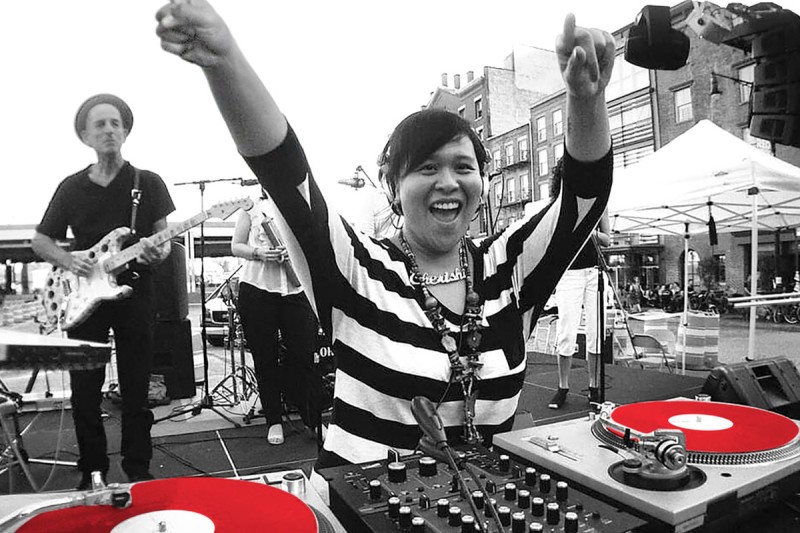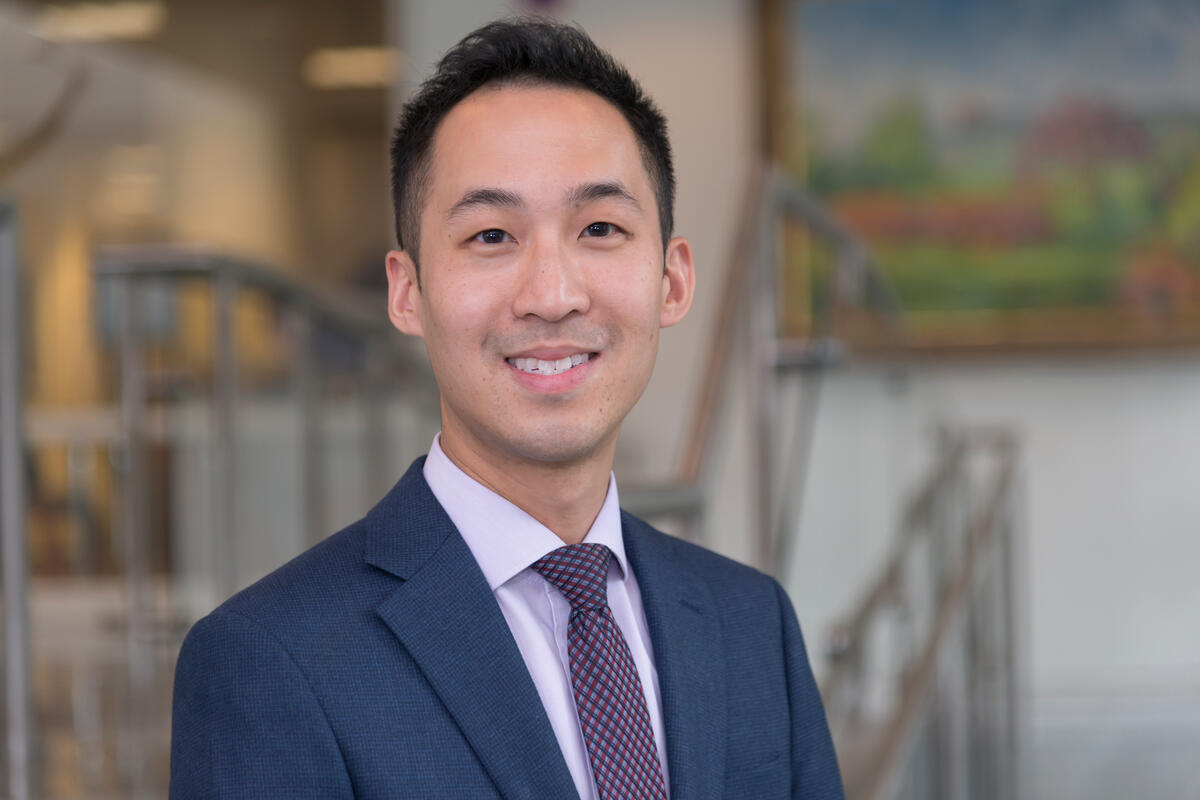
Anxiety was not new to Cynthia Malaran when she was diagnosed with breast cancer, at the age of 39. The professional DJ and writer from New York City had seen a therapist to help with her feelings of anxiety in the past, but a cancer diagnosis and treatment had made it harder for her to cope.
Cynthia is not alone. “One in three cancer survivors has anxiety, which often persists for years after treatment ends,” says Kevin Liou, MD, a physician and Integrative Medicine Specialist at Memorial Sloan Kettering Cancer Center (MSK).
Before having surgery to remove both breasts at MSK, Cynthia was given Herceptin, a targeted therapy that helps block the growth and spread of HER2-positive cancer cells. But she experienced some unusual side effects and had to stop taking it.
“That freaked me out because I was afraid of how that would affect my prognosis,” says Cynthia. Her medical oncologist at MSK, Jacqueline Bromberg, MD, PhD, encouraged her to focus on her creative talents and consider integrative medicine, an approach that blends science-backed complementary therapies with conventional medicine.
“I work in music and writing, but I hadn’t figured out how to connect that creativity with my feelings of anxiety after I had healed from surgery, and treatment ended,” says Cynthia. Then she learned about a music therapy study being conducted at MSK, and that changed everything.
Music Therapy: More Than a Temporary Pick-Me-Up
“Music therapy works because it not only helps people to connect with one another in a fun way, but it also provides a creative outlet to process a traumatic experience, such as the diagnosis and treatment of cancer,” explains Dr. Liou, a physician who specializes in managing the symptoms of cancer and treatment with evidence-based holistic approaches like music therapy.
Dr. Liou is part of a team of researchers that led a clinical trial with 300 cancer survivors to see how music therapy compares to cognitive behavioral therapy (CBT), a type of psychotherapy that has long been the go-to treatment for anxiety. The study results were published January 5, 2026 in The Journal of Clinical Oncology.

“CBT is a well-studied approach that is effective for anxiety, but it doesn’t always work well for everyone, and some people can’t easily get access to it or don’t feel comfortable trying it because of the stigma surrounding conventional mental health services,” he says. “Music, on the other hand, is universally found in cultures around the world, and research continues to uncover the mental health benefits of engaging with music.”
During music therapy, a board-certified music therapist guides participants according to their medical needs and musical preferences. They can listen to music, play an instrument, write a song, or engage with music in other ways. These activities have been shown to improve overall well-being and help reduce cancer-related symptoms such as anxiety, fatigue, pain, and depression.
“Our study shows that music therapy is just as effective as CBT and that it provides more than just a temporary pick-me-up — it can produce long-lasting benefits for anxiety during people’s cancer journeys,” says Dr. Liou, who also presented the results of the study at the annual meeting of the American Society of Cancer Oncology (ASCO), in June.
Previous research has shown that patients who receive music therapy during a hospital stay can get short-term relief of their anxiety.
“What’s unique about this study is that we looked at long-term outcomes, and it was exciting to see that anxiety levels continued to be at a very low level four months after people finished music therapy,” explains Dr. Liou. “We also delivered music therapy remotely, which expanded access to more people.”
Using Music To Heal
Cynthia says participating in the music therapy study has made a big difference in how she copes with anxiety.
“Working professionally in music, you would think I had a grasp on how to use music for my own healing,” she says. “But having it be guided by a therapist from MSK helped me open up and confront feelings that were trapped inside.”
During the study, Cynthia participated in seven weekly sessions with her music therapist, Camila Casaw, via Zoom. Camila used the first few sessions to discover which types of music resonated with Cynthia, and she provided tips on how she could use music to help quiet her anxiety.

“I use ambient music when I want to rest, and dance music or disco when I want to move and shake the icky feelings out of me,” says Cynthia.
They used that as a basis to co-write and record a song during the sessions that followed. Camila played guitar while Cynthia played the piano for the song, called “An Open Stillness.” It was a cathartic experience that allowed Cynthia to openly express her true, unfiltered emotions more easily than in a conversation.
“The song was inspired by how burdened, worried, and tired I was feeling at the time,” she explains. “Tapping into your pain can make you feel vulnerable, but music is safe and soothing, and it allows you to open up in a different way.”
Dr. Liou notes that this is the first music therapy study to include a collaborative song-writing process to treat anxiety in cancer survivors. While many previous studies treated anxiety by having patients simply listen to relaxing music, this study had participants engage more actively with music through songwriting.
“I believe this creative process of writing an original song with personal meaning is what allowed the benefits of music therapy to persist four months later,” says Dr. Liou. “The song becomes the outlet for you to process this experience of going through cancer and moving on to the next phase of your life.”
Improving Mental Health With Music Therapy
Cynthia continues to use the techniques she learned, even after being in remission for 10 years. She often leans on music to cope with anxiety triggered by things other than cancer — such as worrying about her aging parents, traffic, or the day’s news headlines.
“To relieve my thoughts, I write song lyrics, jam with my guitar, or simply hum, which is so effective and more physical than we realize,” she says.
For Cynthia, music therapy can be more useful than medication. “There are things within us that we can heal but no pill can fix,” she explains. “Pills can numb your awareness, but music therapy brings you back into your body in the moment and helps you feel.”
According to Dr. Liou, the study shows that music therapy should be considered alongside CBT as an effective treatment option for anxiety.
“Improving mental health during cancer survivorship requires a broader and more innovative set of tools than ever before,” he says. “There’s something unique about music and the emotional impact it can have on you. That’s why I want to keep researching this.”